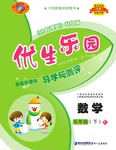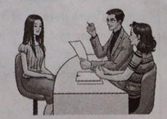题目内容
There once was a master who went to India. In those times, we didn't have airplanes or many kinds of transportation that we do now. So the master went to India . And when he got there, he saw a lot of fruit. In India they have plenty of fruit to sell, but much of it is because they can't grow much the water situation. So he saw one basket, a big basket of some very red, long fruit. And it was the cheapest in the shop, not expensive at all.
So he and asked, "How much per kilo?" And the shopkeeper said, "Two rupees."(印度货币) Two rupees in India is ; it's like dirt (尘土). So he bought a whole kilogram of the fruit and started eating it. But after he ate some of it: Oh, my God! His __ watered, his mouth watered and burned, his eyes were burning, his head was burning and his face became . As he coughed terribly , he up and down, saying, "Ah! Ah! Ah!"
But he still continued to eat the fruit! Some people who were looking at him shook their heads and said, "You're crazy, man. Those are chilies(辣椒)! You can't eat so many; they're not good for you! People use them a condiment(作料), but only a little bit to put into food for taste. You can't just eat them by the handful like that; they're not !" So the silly master said, "No, I can't stop! I paid money for them, now I'll eat them. It's my !"
And you think that master was silly, right? Similarly, we sometimes do a lot of things like that. we still continue just because we've money, time, effort and love into it. Just like the man who ate the chilies and felt so bad but couldn't stop because he didn't want to waste the money he'd paid.
So you've lost something, let it go and move on. That's better than continuing to .
So he and asked, "How much per kilo?" And the shopkeeper said, "Two rupees."(印度货币) Two rupees in India is ; it's like dirt (尘土). So he bought a whole kilogram of the fruit and started eating it. But after he ate some of it: Oh, my God! His __ watered, his mouth watered and burned, his eyes were burning, his head was burning and his face became . As he coughed terribly , he up and down, saying, "Ah! Ah! Ah!"
But he still continued to eat the fruit! Some people who were looking at him shook their heads and said, "You're crazy, man. Those are chilies(辣椒)! You can't eat so many; they're not good for you! People use them a condiment(作料), but only a little bit to put into food for taste. You can't just eat them by the handful like that; they're not !" So the silly master said, "No, I can't stop! I paid money for them, now I'll eat them. It's my !"
And you think that master was silly, right? Similarly, we sometimes do a lot of things like that. we still continue just because we've money, time, effort and love into it. Just like the man who ate the chilies and felt so bad but couldn't stop because he didn't want to waste the money he'd paid.
So you've lost something, let it go and move on. That's better than continuing to .
| 小题1: |
|
| 小题2: |
|
| 小题3: |
|
| 小题4: |
|
| 小题5: |
|
| 小题6: |
|
| 小题7: |
|
| 小题8: |
|
| 小题9: |
|
| 小题10: |
|
| 小题11: |
|
| 小题12: |
|
| 小题13: |
|
| 小题14: |
|
| 小题15: |
|
小题1:B
小题2:C
小题3:A
小题4:B
小题5:B
小题6:A
小题7:C
小题8:D
小题9:A
小题10:C
小题11:B
小题12:A
小题13:D
小题14:C
小题15:D
试题分析:这篇短文说的是一位大师来到印度,他看到那里有很多水果,但是大多数都很贵。他捡最便宜的买了一些,吃了起来。吃了这种水果,大师被辣的流泪,但是他还是继续吃。通过这个故事作者告诉我们有时候我们会坚持一些愚蠢的事,仅仅是因为我们为此付出了钱、时间或精力。但是这样是不值得的,我们要学会适时放手。
小题1:考查介词短语及语境的理解。句意:在那个时候没有飞机,也没有我们现在有点各种各样的交通工具,所以这位大师走着去了印度。根据句意可知是on foot 步行。by air 乘坐飞机;by taxi 乘坐出租车;by car乘坐汽车,这些都与文意不符。故选B。
小题2:考查形容词及语境的理解。句意:很多水果都很贵因为水的原因他们不能种得太多。既然水果的量很少,所以价格应该很贵。由下文大师挑了最便宜的水果买也可推断出。delicious 美味的;cheap 便宜的;expensive 贵的;fresh新鲜的。故选C。
小题3:考查介词短语及语境的理解。句意:因为水的问题他们不能种的太多。because of 因为;with the help of 在…帮助下;in need of需要;as a result 结果。根据句意选A。
小题4:考查动词短语及语境的理解。句意:因此他走向前问:“这个多少钱一公斤?”get up 起床;go up 上升,走向前;turn up出现;将声音开大;look up 向上看;查阅。这里是说大师终于看到了一种好像比较便宜的水果,走向前去询问价格。故选B。
小题5:考查代词及语境的理解。句意:在印度,两个卢布根本什么也不算,就像尘土一样。something 某事;nothing 没什么事;everything 每件事;anything任何事。这里是说这种水果很便宜。故选B。
小题6:考查名词及语境的理解。句意:他吃了这种水果后,眼睛流眼泪,嘴里流口水,像火烧一样。根据下文his eyes were burning可知这里说的是眼睛。ears 耳朵;mouth 嘴;nose鼻子。根据句意可知选A。
小题7:考查形容词及语境的理解。句意:他的头像着火一样,脸也很红。由下文我们可以知道这位大师吃的水果其实是辣椒,所以吃了它之后应该是脸变红。sad 伤心的;ugly 丑陋的;cold冷的。根据句意可知选C。
小题8:考查动词及语境的理解。句意:他跳着说:“啊!啊!啊!”这里是大师吃了很多辣椒之后的表现,因为辣椒很辣,而且他还吃得很多,所以辣的蹦上蹦下。search 寻找;climb 爬;jog慢走。故选D。
小题9:考查介词及语境的理解。句意:人们用它当作料,只会放一点到食物中来调味。as 作为;for为了;to 对……来说;with和,用。use…as 把……当做……用。故选A。
小题10:考查名词及语境的理解。句意:你不能直接用手那样的吃,他们不是水果。medicine 药;vegetable蔬菜; fruit 水果;food食物。因为上文提到过他去水果店买水果,所以这里应该是fruit,故选C。
小题11:考查连词及语境的理解。句意:我已经为他们付了钱,现在我要吃掉他们。and 在这里表示承接。instead 代替;but 但是;also也,而且。根据句意可知选B。
小题12:考查名词及语境的理解。句意:这是花的我的钱。money 钱;food 食物;fruit 水果;drink饮料。这里大师虽然被辣椒辣的很难受,但是还在疼惜他的钱。故选A。
小题13:考查动词及语境的理解。句意:有时候我们也会做很多这样的事,我们会继续仅仅是因为我们为之付出了钱、时间、努力和爱。put…into 把…放到…里面,在此意为付出。join 参加,加入;spend 花费;句型是spend time/money in doing sth./ on sth.;pay付钱,pay for。故选D。
小题14:考查连词及语境的理解。句意:所以即使你失去了某个东西,就让它去吧,继续前行。as if 好像;ever since 自从;even if 即使;so that 以至于。这里作者是建议我们当失去东西的时候,我们不应该在浪费时间精力在没有用的事情上,而是要向前看。故选C。
小题15:考查动词及语境的理解。句意:继续比失去更好。fight 打架;战斗;fail 失败;try 尽力;lose失去。根据上一句话even if you’ve lost something 可知这里是lose,失去。故选D。

练习册系列答案
 优生乐园系列答案
优生乐园系列答案
相关题目
